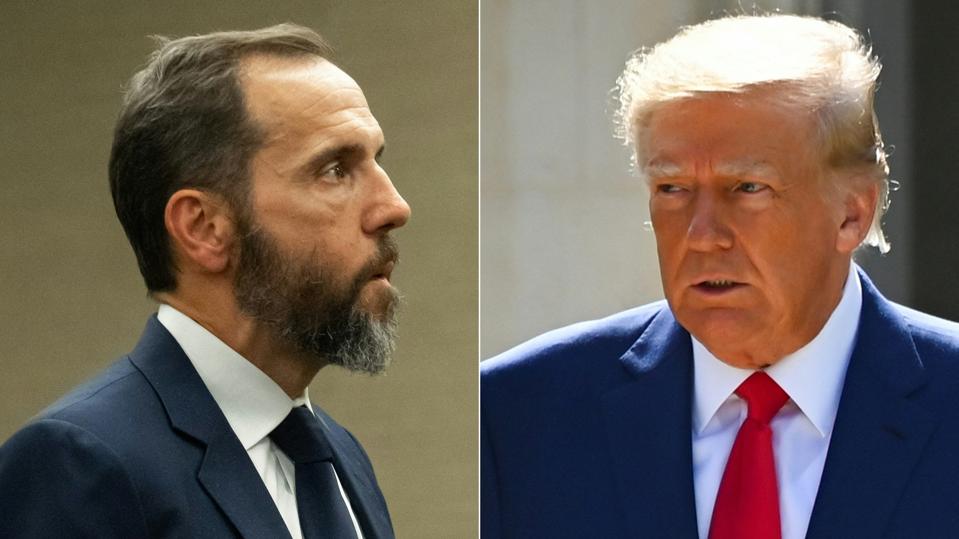Topline
Federal prosecutors on Tuesday urged Judge Aileen Cannon to drop arguments around the Presidential Records Act—which support Donald Trump’s claims he was authorized to categorize classified documents as personal records—from the list of required instructions to be provided to the jury in the case involving his handling of classified documents, amid growing frustrations about slow progress in the case.
Key Facts
Last month, Cannon ordered both the prosecution and the defense to submit potential jury instructions on the merits of Trump’s argument—which claims the Presidential Records Act covered his handling of the documents.
In a court filing on Tuesday night, prosecutors led by Special Counsel Jack Smith responded by saying the order seeking jury instructions was based on an “unstated and fundamentally flawed legal premise.”
Prosecutors wrote that the 1978 presidential recordkeeping law’s “distinction between personal and presidential records has no bearing on whether a former President’s possession of documents containing national defense information is authorized under the Espionage Act” and it “should play no role in the jury instructions.”
The filing argued that Trump did not designate the classified documents as personal under the Presidential Records Act (PRA) during his term—which he claims he did—and the argument was “first invented” in February 2022 “long after he left the White House.”
Prosecutors then urged the court to act on this matter promptly as “failure to do so would improperly jeopardize the Government’s right to a fair trial.”
Smith’s team also signaled that they plan to appeal if the judge rules against them.
Contra
In their own filing on Tuesday night, Trump’s defense attorneys backed Cannon’s order saying she “correctly stated the law” in allowing the submission of potential jury instructions on the Presidential Records Act, reiterating their argument that the former president had broad authority under it to designate the documents as personal records. In their submission detailing instructions to the jury, Trump’s lawyers wrote: “Trump exercised that authority, at times verbally and at times without using formal procedures, while he was President. I instruct you that those declassification decisions are examples of valid and legally appropriate uses of President Trump’s declassification authority.”
Key Background
Last month, Cannon denied Trump’s attempt to seek a dismissal of the case—where he argued that his actions were covered under presidential immunity. The Florida federal court judge also appeared skeptical about Trump’s argument that the case should be thrown out on the basis that the ex-president declared the classified documents as “personal” using the Presidential Records Act. Later in March, however, the judge issued an order asking both the prosecution and defense to write instructions about the Presidential Records Act, including one scenario where the president has “sole authority” to categorize records as personal and a court or jury is not “permitted to make or review such a categorization decision.” The order also sought a second set of instructions where the jury would be permitted to determine which of the documents Trump is accused of mishandling “is personal or presidential.”
Further Reading
Judge Aileen Cannon Skeptical Of Trump’s Arguments At Documents Hearing—But Doesn’t Schedule Trial (Forbes)
Judge Denies One Of Trump’s Motions To Dismiss Classified Documents Case (Forbes)
Is Trump Exempt From Criminal Charges? Ex-President Now Claiming ‘Immunity’ In All Criminal Cases. (Forbes)

